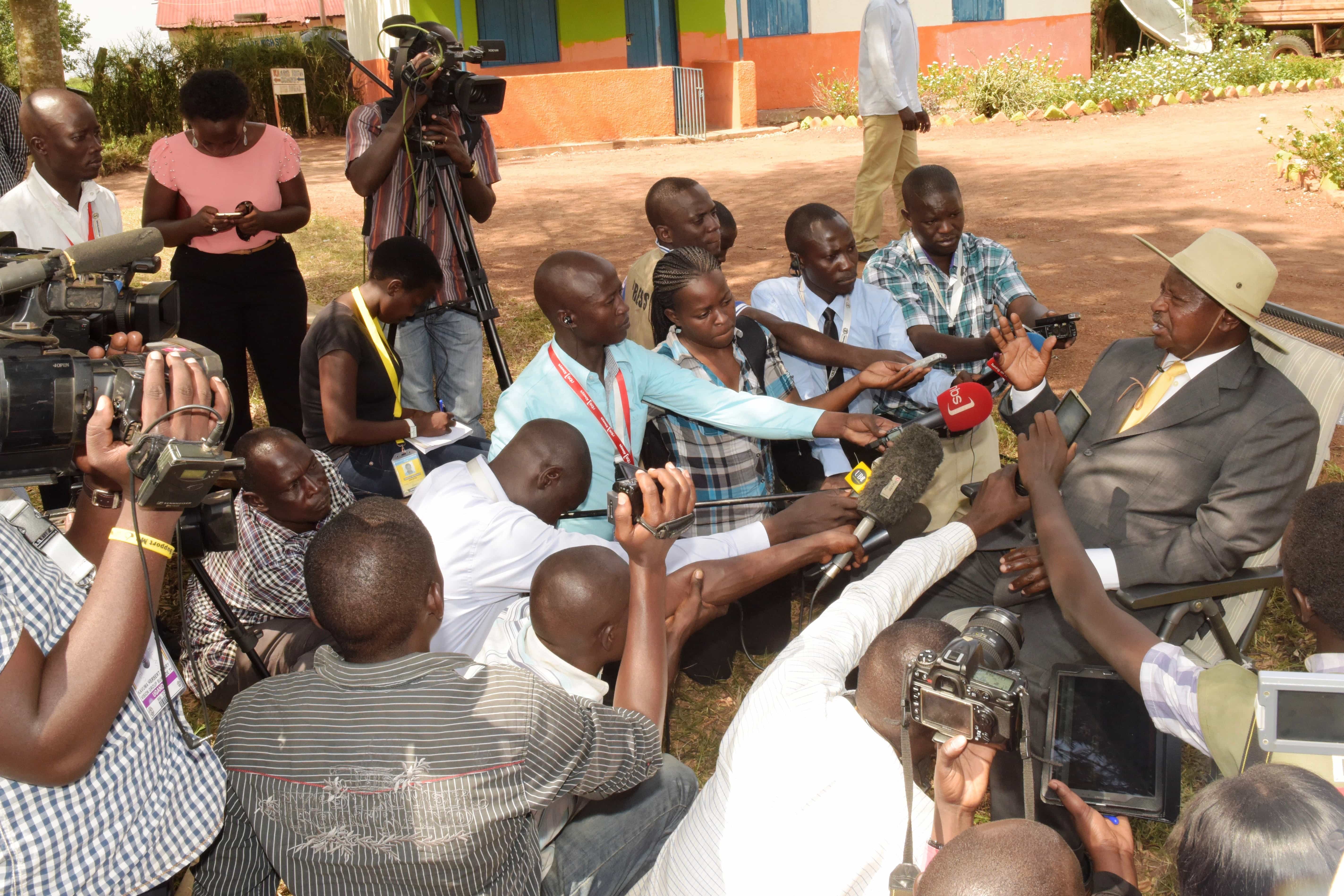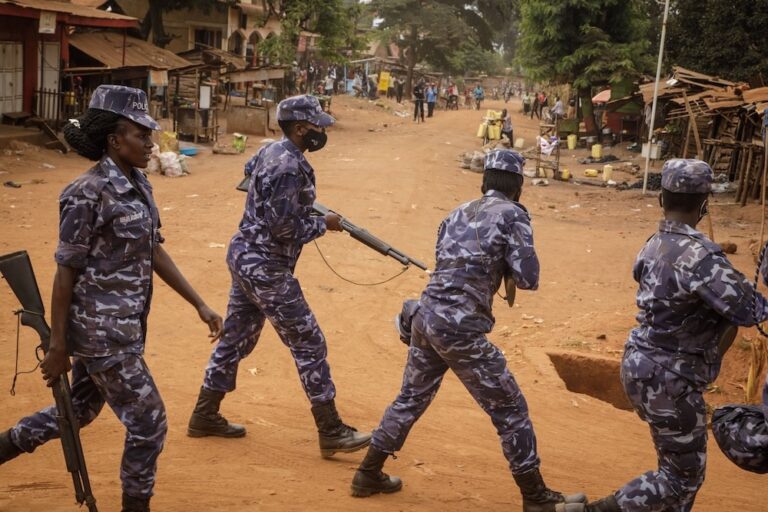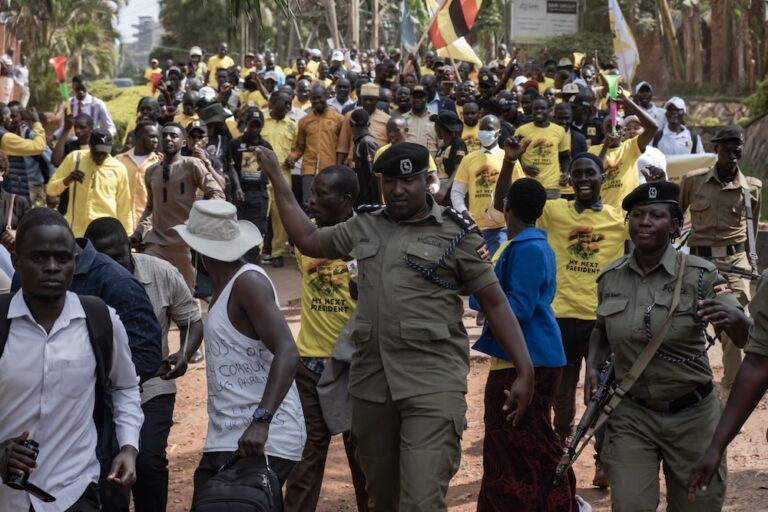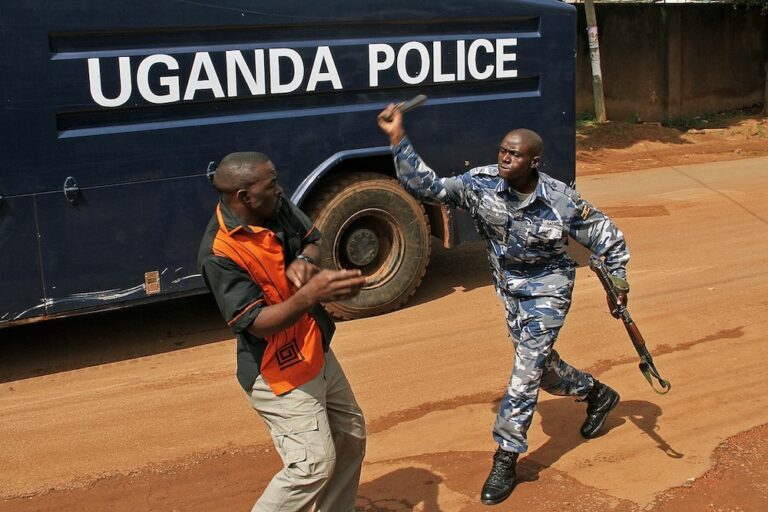2017 is turning out to be a hopeful year for Uganda, as justice is finally being served for numerous violations against journalists.
This statement was originally published on africafex.org on 7 April 2017.
A number of freedom of expression violators have recently been prosecuted for abusing journalists and media professionals carrying out their legitimate duty in Uganda.
The freedom of expression environment in Uganda deteriorated sharply in 2016 – which was also an election year. Incidents of physical attacks, internet shutdowns, the denial of journalists to access news scenes, office break-ins, and damage to journalists’ gadgets – among others – were the major types of violations recorded in 2016. The major perpetrators were security forces, ruling party supporters, politicians, unidentified armed men, individuals and organised groups. Several human rights organisations, including the African Freedom of Expression Exchange (AFEX), expressed concern about the deteriorating human rights situation in the country and urged President Yoweri Museveni to intervene.
The year 2017 looks hopeful; justice is finally being served for some of the numerous violations perpetrated against journalists and media professionals in the country in 2015 and 2016.
On March 29, 2017, supporters of the ruling National Resistance Movement (NRM) party were sentenced to a fine of three million shillings (US $845) each on three counts of assault. They are also to render a community service at the court premises – for two hours daily for a period of 30 days – for the offence of malicious damage to property. Failure to pay or do the community service will amount to each of the convicts serving a jail term of six and four months, respectively.
Delivering the judgement, the presiding judge, Mastula Mulondo, said “the complainants were just doing their work as journalists and them being stopped [and] beaten was willful and unlawful, therefore the accused persons are convicted as charged.”
She also lamented the rise in acts of violations against journalists and asked for an equally robust response from the judiciary.
“Offences of this nature are on the rise, it is the judicial system that can correct this behavior,” she said.
The case dates back to March 4, 2016 when the convicted youth assaulted and damaged the property of Kigongo Ssebalamu and Ssempijja Godfrey – both working with Vision Group, and Kakooza George William, working with Central Broad Casting Services (CBS). The journalists had gone to cover local elections of the Entebbe Council Elections at Entebbe Municipal Council offices.
On March 15, 2017 a business woman who had assaulted a journalist in 2015 was also convicted to one year in prison by the Magistrates’ Court at Kayunga district in Central Uganda. On June 4, 2015, the business woman, Naluwa Rose, beat up a journalist working with Sauti FM, Mukiibi Sula, while covering a suspected land dispute at Kyampisi village. Sula – who sustained injuries to the back and the neck – reported the matter to Bukoloto police station which subsequently arrested Naluwa Rose on 25 February 2016.
Similarly, on Friday March 10, 2017, a Grade One Magistrate of Buganda Road Court, Kamasanyu Gladys, sentenced a senior police officer, (the former Division Police Commander (DPC) of Old Kampala, Joram Mwesigye), for physically assaulting Andrew Lwanga, who used to work with WBS Television in January 2015. Mwesigye was condemned to a fine of one million Ugandan shillings (USD 282), and five million Ugandan shillings (USD 1,409) compensation to the assaulted journalist which he has to pay within 30 days. Failure to pay the money within the said time frame was to attract a one-year jail term. The judgement has, however, not been well-received by the media fraternity especially as Andrew Lwanga, remains unemployed and is still undergoing treatment. Andrew, who was assaulted, now walks with the help of clutches.
The African Freedom of Expression Exchange (AFEX) acknowledges the intervention of the judiciary in Uganda to bring violators of freedom of expression rights in the country to book. However, we urge the court to expedite the judicial procedures to ensure that sentences are not dragged. Justice delayed is justice denied.



